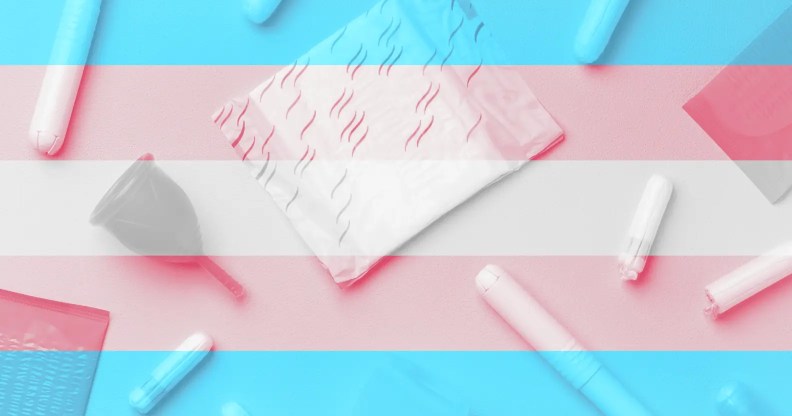Lib Dems to include trans and non-binary people in period poverty debate: ‘Not just a women’s issue’

Period products in Scotland are free to all who need them.
The Liberal Democrats are to include trans and non-binary people in a period poverty debate that aims to provide free menstruation products in England.
Ending Period Poverty, a policy motion submitted by a London branch of the party and the Young Liberals, will be debated at the Lib Dems’ autumn party conference in Bournemouth on 23 September.
Lib Dems leader Ed Davey will be among those to vote on the policy proposal that states: “Menstruation is not just a women’s issue, and also affects some trans and non-binary people.”
The party’s women’s and equalities spokeswoman, Christine Jardine, has backed the move, telling PinkNews: “Period products are a basic necessity, not a luxury. Nobody should experience period poverty, yet, thanks to the cost of living crisis, this is sadly becoming more common.
“Liberal Democrats will fight to ensure free period products for anyone who needs them in England. It’s the only way to end period poverty and bring us one step closer to equality.”
The move has predictably angered right-wing UK news outlets, with Talk TV pundit Alex Phillips calling it “non-scientific wokery” and claiming that only people with “blue hair” and “mental-health issues” are “actually bothered by this”.
Anti-trans campaigner Helen Joyce, also speaking on Talk TV, voiced her opposition to the scheme, calling the inclusion of trans and non-binary people “woke signalling”.
‘Period products are a human right’
The Lib Dem motion also highlights that the annual average cost of sanitary products is £120, according to the charity Bloody Good Period, which previously told PinkNews: “Period poverty in the UK is becoming an increasingly bigger issue, year on year.
“Period products should be freely available, and they should be accompanied by informative, shame-free, inclusive education, normalisation and practical support.”
The motion states that “Period products are a human right, not a luxury, nobody should experience period poverty. England’s current free period product provision is not fit for purpose [and] it is in everyone’s interests for the stigma around periods to be addressed.”
Among its aims, the proposed scheme calls on the government to introduce a right for people in England to access a choice of free period products, place a duty on local authorities and education providers to provide free products, and improve education on periods in a bid to reduce stigma.
Last year, Scotland became the first country in the world to make period products free to all people who need them – regardless of age, gender or income.
Following the landmark Period Products Act, campaigners have called on the UK government to follow Scotland’s example, especially having promised to end period poverty globally by 2030.
How did this story make you feel?

